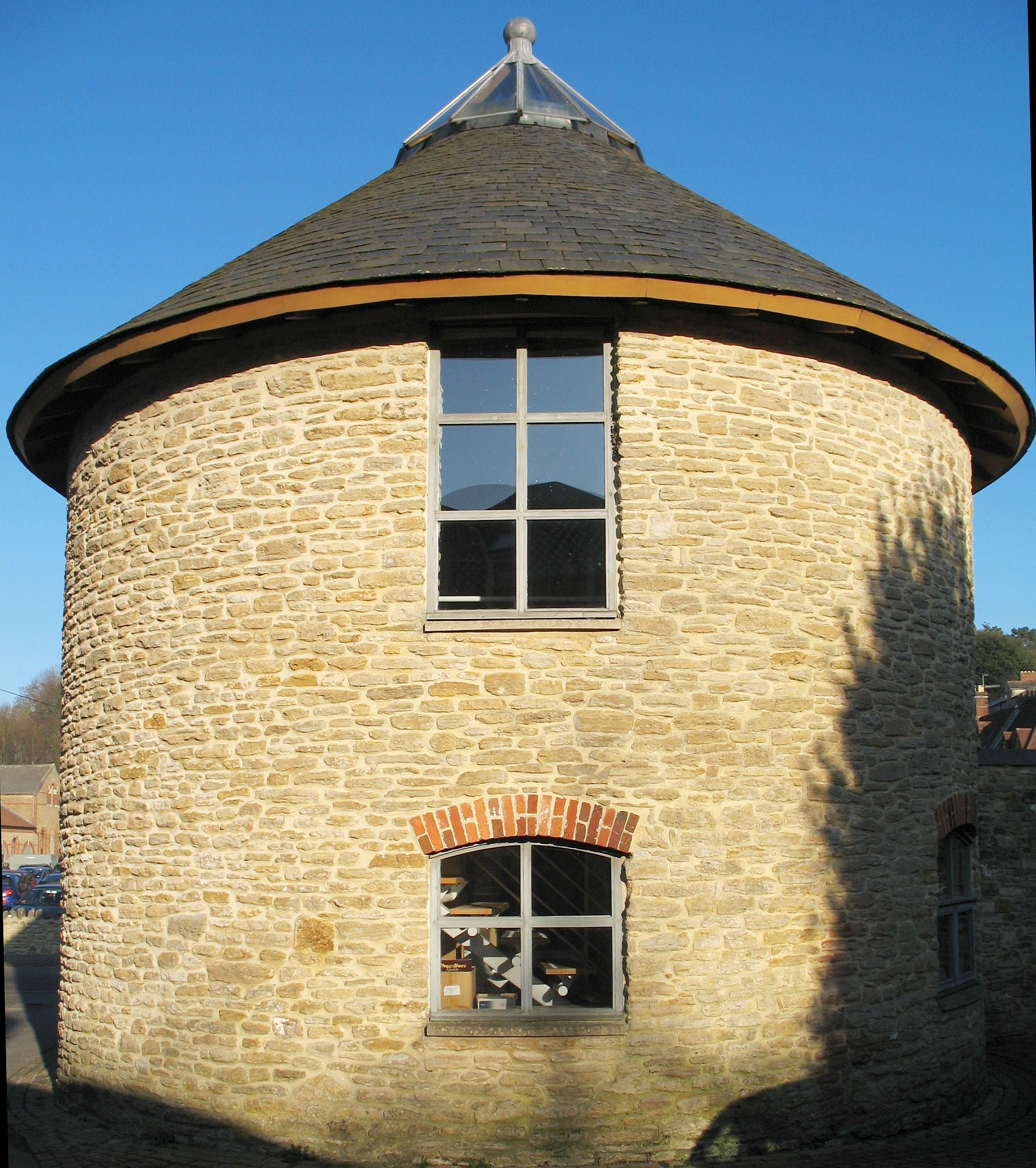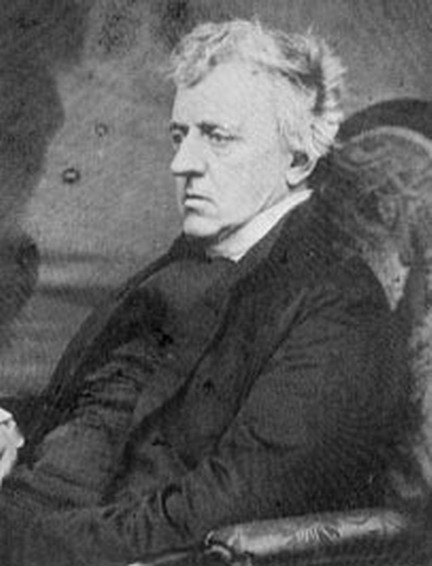|
C. Henry Daniel
Charles Henry Olive Daniel (30 September 1836 – 6 September 1919) was a British classicist, Anglican clergyman and printer. Having been a lecturer in classics at King's College, London, he was elected a fellow of Worcester College, Oxford in 1863. He was ordained as a deacon in the Church of England in 1864 and went on to serve his college as a tutor, bursar and chaplain. He was elected provost of Worcester College in 1903, serving until his death in 1919. In 1874, he also established the Daniel Press, a private press. Early life and education Daniel was born on 30 September 1836 in Wareham, Dorset, England, as the eldest son of the Reverend Alfred Daniel and Eliza Anne ( Cruttwell). As a baby, he was presented to the then Princess Victoria, the year before she became Queen of the United Kingdom. Two years after his birth, his father was appointed perpetual curate of Frome, Somerset, and it was there that he spent the rest of his childhood. He was educated at Grosvenor College, B ... [...More Info...] [...Related Items...] OR: [Wikipedia] [Google] [Baidu] |
The Reverend
The Reverend (abbreviated as The Revd, The Rev'd or The Rev) is an honorific style (form of address), style given to certain (primarily Western Christian, Western) Christian clergy and Christian minister, ministers. There are sometimes differences in the way the style is used in different countries and church traditions. ''The Reverend'' is correctly called a ''style'', but is sometimes referred to as a title, form of address, or title of respect. Etymology The term is an anglicisation of the Latin , the style originally used in Latin documents in medieval Europe. It is the gerundive or future passive participle of the verb ("to respect; to revere"), meaning "[one who is] to be revered/must be respected". ''The Reverend'' is therefore equivalent to ''the Honourable'' or ''the Venerable''. Originating as a general term of respectful address in the 15th century, it became particularly associated with clergy by the 17th century, with variations associated with certain ranks in th ... [...More Info...] [...Related Items...] OR: [Wikipedia] [Google] [Baidu] |
Daniel Press
The Daniel Press was a private press in England, run by Charles Henry Olive Daniel (1836–1919), his wife Emily and later even their daughters, firstly at Frome and afterwards in Oxford. Henry Daniel began printing in 1845, when still a schoolboy, at Frome in Somerset, and he continued to print books and ephemera well into the twentieth century, latterly at Oxford where he ultimately became Provost of Worcester College, Oxford, Worcester College. His typography was antiquarian in style, and the quality of his printing might be described as vigorous rather than fine. However, he was a great enthusiast for letterpress, and is notable for the early date of his private press activities (starting more than forty years before William Morris conceived the Kelmscott Press and the so-called 'private press movement' began). The Daniel Press is interesting too for the works printed and published there, including reprints of little-known early-modern texts, major works by John Keats, Keats, ... [...More Info...] [...Related Items...] OR: [Wikipedia] [Google] [Baidu] |
Doctor Of Divinity
A Doctor of Divinity (DD or DDiv; ) is the holder of an advanced academic degree in divinity (academic discipline), divinity (i.e., Christian theology and Christian ministry, ministry or other theologies. The term is more common in the English-speaking world than elsewhere. In the United Kingdom and Ireland, the DD is usually a higher doctorate conferred upon a religious scholar of standing and distinction, usually for accomplishments beyond the Doctor of Philosophy, PhD or Doctor of Theology, ThD level. In the United States, the DD is generally an honorary degree. In Catholic higher education, Catholic universities, faculties of Catholic theology, theology usually grant the degree of Doctor of Sacred Theology (STD), but the DD may be awarded as an honorary degree. Doctor of Divinity by country or church Great Britain & Ireland In the United Kingdom and Ireland, the DD is a higher doctorate conferred by universities upon a religious scholar of standing and distinction, ... [...More Info...] [...Related Items...] OR: [Wikipedia] [Google] [Baidu] |
Oxford Union
The Oxford Union Society, commonly referred to as the Oxford Union, is a debating society in the city of Oxford, England, whose membership is drawn primarily from the University of Oxford. Founded in 1823, it is one of Britain's oldest university unions and is widely considered as one of the world's most prestigious private students' societies. The Oxford Union exists independently from the universityOxford Union Society Rules: Rule 69 "Independence" and is distinct from the Oxford University Student Union. The Oxford Union has a tradition of hosting some of the world's most prominent individuals across politics, academia, and popular culture ranging from Albert Einstein and Elton John to Sir Winston Churchill, Ronald Reagan, Queen Elizabeth II and Mahathir Mohamad. Many former Presidents of the Union have gone on to hold high office in the UK and the Commonwealth including William Gladstone, Ted Heath, Boris Johnson, and Benazir Bhutto. History and status Genesis ... [...More Info...] [...Related Items...] OR: [Wikipedia] [Google] [Baidu] |
Bachelor Of Arts
A Bachelor of Arts (abbreviated B.A., BA, A.B. or AB; from the Latin ', ', or ') is the holder of a bachelor's degree awarded for an undergraduate program in the liberal arts, or, in some cases, other disciplines. A Bachelor of Arts degree course is generally completed in three or four years, depending on the country and institution. * Degree attainment typically takes five or more years in Argentina, Brazil, Chile, and Peru. * Degree attainment typically takes four years in Afghanistan, Armenia, Azerbaijan, Bangladesh, Brunei, Bulgaria, Canada (except Quebec), China, Egypt, Finland, Georgia, Ghana, Greece, Hong Kong, Indonesia, India, Iran, Iraq, Ireland, Jamaica, Japan, Kazakhstan, Kenya, Kuwait, Latvia, Lebanon, Lithuania, Malaysia, Mexico, Mongolia, Myanmar, Nepal, the Netherlands, Nigeria, Pakistan, the Philippines, Qatar, Russia, Saudi Arabia, Scotland, Serbia, Singapore, South Africa, South Korea, Spain, Sri Lanka, Taiwan, Thailand, Turkey, Ukraine, the United S ... [...More Info...] [...Related Items...] OR: [Wikipedia] [Google] [Baidu] |
First Class Honours
The British undergraduate degree classification system is a grading structure used for undergraduate degrees or bachelor's degrees and integrated master's degrees in the United Kingdom. The system has been applied, sometimes with significant variation, in other countries and regions. The UK's university degree classification system, established in 1918, serves to recognize academic achievement beyond examination performance. Bachelor's degrees in the UK can either be honours or ordinary degrees, with honours degrees classified into First Class, Upper Second Class (2:1), Lower Second Class (2:2), and Third Class based on weighted averages of marks. The specific thresholds for these classifications can vary by institution. Integrated master's degrees follow a similar classification, and there is some room for discretion in awarding final classifications based on a student's overall performance and work quality. The honours degree system has been subject to scrutiny owing to signif ... [...More Info...] [...Related Items...] OR: [Wikipedia] [Google] [Baidu] |
University Of Oxford
The University of Oxford is a collegiate university, collegiate research university in Oxford, England. There is evidence of teaching as early as 1096, making it the oldest university in the English-speaking world and the List of oldest universities in continuous operation, second-oldest continuously operating university globally. It expanded rapidly from 1167, when Henry II of England, Henry II prohibited English students from attending the University of Paris. When disputes erupted between students and the Oxford townspeople, some Oxford academics fled northeast to Cambridge, where they established the University of Cambridge in 1209. The two English Ancient university, ancient universities share many common features and are jointly referred to as ''Oxbridge''. The University of Oxford comprises 43 constituent colleges, consisting of 36 Colleges of the University of Oxford, semi-autonomous colleges, four permanent private halls and three societies (colleges that are depar ... [...More Info...] [...Related Items...] OR: [Wikipedia] [Google] [Baidu] |
Classics
Classics, also classical studies or Ancient Greek and Roman studies, is the study of classical antiquity. In the Western world, ''classics'' traditionally refers to the study of Ancient Greek literature, Ancient Greek and Roman literature and their original languages, Ancient Greek and Latin. Classics may also include as secondary subjects Greco-Roman Ancient philosophy, philosophy, Ancient history, history, archaeology, anthropology, classical architecture, architecture, Ancient art, art, Classical mythology, mythology, and society. In Western culture, Western civilization, the study of the Ancient Greek and Roman classics was considered the foundation of the humanities, and they traditionally have been the cornerstone of an elite higher education. Etymology The word ''classics'' is derived from the Latin adjective ''wikt:classicus, classicus'', meaning "belonging to the highest class of Citizenship, citizens." The word was originally used to describe the members of the Patri ... [...More Info...] [...Related Items...] OR: [Wikipedia] [Google] [Baidu] |
Ruthven Printing Press
The Ruthven printing press was invented and manufactured by John Ruthven of Edinburgh, Scotland, from 1819 to 1822. The Ruthven press was an iron bed press which functioned by means of an unconventional platen which rolled over a stationary table which held the type, where the pressure on the type faces was exerted from below, instead of in the conventional method where pressure was applied from above. The platen is supported by two iron springs, under which are four brass bevelled wheels which move along on two tracks made of bevelled steel. After the impression is made the springs give way, and consequently rise up. The press overall incorporated a number of other rather complex mechanical components, the details of which are beyond the scope of this article. The press was smaller in size than most presses of this period, easier to use, and subsequently it quickly established a favorable reputation for itself among English printers. Moran, 1973, p. 71 The Ruthven printing press ... [...More Info...] [...Related Items...] OR: [Wikipedia] [Google] [Baidu] |
Frome, Somerset
Frome ( ) is a town and civil parish in Somerset, England, on uneven high ground at the eastern end of the Mendip Hills and on the River Frome, south of Bath. The population of the parish was 28,559 in 2021. Frome was one of the largest towns in Somerset until the Industrial Revolution. The town first grew due to the wool and cloth industry; it later diversified into metal-working and printing, although these have declined. The town was enlarged during the 20th century but retains a large number of listed buildings, and most of the centre falls within a conservation area. The town has road and rail transport links and acts as an economic centre for the surrounding area. It provides a centre for cultural and sporting activities, including the annual Frome Festival and Frome Museum. In 2014, Frome was named by ''The Times'' as the "sixth coolest town" in Britain. It was shortlisted as one of three towns in the country for the 2016 Urbanism Awards in the 'Great Town Award' c ... [...More Info...] [...Related Items...] OR: [Wikipedia] [Google] [Baidu] |
Perpetual Curate
Perpetual curate was a class of resident parish priest or incumbent curate within the United Church of England and Ireland (name of the combined Anglican churches of England and Ireland from 1800 to 1871). The term is found in common use mainly during the first half of the 19th century. The legal status of perpetual curate originated as an administrative anomaly in the 16th century. Unlike ancient rectories and vicarages, perpetual curacies were supported by a cash stipend, usually maintained by an endowment fund, and had no ancient right to income from tithe or glebe. In the 19th century, when large numbers of new churches and parochial units were needed in England and Wales politically and administratively, it proved much more acceptable to elevate former chapelries to parish status, or create ecclesiastical districts with new churches within ancient parishes, than to divide existing vicarages and rectories. Under the legislation introduced to facilitate this, the parish pr ... [...More Info...] [...Related Items...] OR: [Wikipedia] [Google] [Baidu] |






